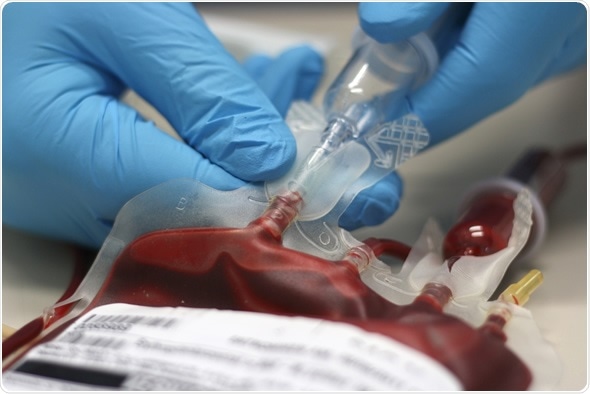In the United States, during the early stages of the HIV epidemic, there was a risk of transmitting HIV through blood transfusions. However, the introduction of the HIV test in the year 1985 quickly led to the screening of all blood donations and today, the nation’s blood supply for transfusions is one of the safest across the globe.
Regulations in the US and other high-income countries require that any person choosing to donate blood is assessed for their HIV risk status and that all blood donations are tested for HIV antibodies and HIV ribonucleic acid (RNA). Any blood that tests positive for HIV is safely disposed of and is never used for transfusions.
Donors who test positive for HIV are notified and refused the option of donating blood in the future. In almost all cases, receiving a blood transfusion is safe, but anyone who is concerned should consult a member of their healthcare team to ask whether the blood has been tested for the presence of HIV or not.
Some low-income countries are not sufficiently equipped to check all blood donations and, although very rare, there have been cases of donated blood products being found to contain HIV in such countries.

A bag of transfusion blood - Image Copyright: SebGross / Shutterstock
In these regions, people who choose to donate blood are asked a battery of questions, which helps to determine whether they have previously been at risk of HIV infection.
In certain cases, individuals in a high risk group who appear to be HIV-negative are not allowed to donate blood over a certain period of time due to the possibility that they may be infected, despite their test result being negative. This is because HIV can take up to 3 months to show up in a blood test after a person has become infected.
Examples of groups of people who may not be allowed to donate blood either for a certain period or for life include sex workers, men who engage in sex with other men, and people who use injectable drugs. If a person falls under one of these categories, they should inform a healthcare professional who will then advise whether it is safe for them to donate or not.
Other factors that may result in a person being banned from donating blood include having a body piercing or tattoo and having a certain illness that is associated with a higher risk of HIV. The guidelines vary by country and individuals need to check what the specific regulations are that apply in the country they are living in.
It is important to note that people cannot contract HIV as a result of donating blood. Blood collection is highly regulated in most countries, with disposable gloves and sterile needles always used for the procedure.
Any person donating blood who suspects that the person collecting their blood is not using a sterile needle, should ask for the needle to be changed before proceeding with their donation.
Further Reading
Last Updated: Feb 26, 2019